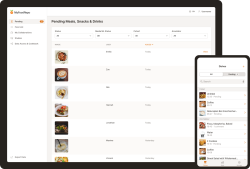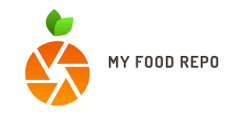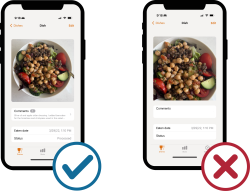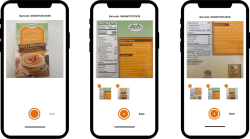Help drive the future of microbiome research
A photo-based nutrition tracker is now available for citizen scientists in the US.

Through a partnership with The Digital Epidemiology Lab at the Swiss Federal Institute of Technology, The Microsetta Initiative is excited to give US citizen scientists exclusive access to MyFoodRepo, a smartphone app that provides an easy way to log daily food consumption.
How to take part
By sharing photos of all the food you eat for seven consecutive days through the app, you can help researchers learn how accurate diet information may lead to better ways of relating diet to microbes in the gut.
Availability is limited: A button will be visible to start if space for participation is available. Once you click to start, a unique code will appear on the MyFoodRepo website which you will use to activate the app.
Please note: Your code will only be available once, please keep a record of it if you are not able to use it immediately. You will have two weeks to use the app before your access expires, so be sure to start logging your diet soon after registering.
How to use the tracker
What to track
Anything you consume! This includes
- All food
- All drinks (including water)
- Vitamins
- Probiotics
Photo tracking
- Photos need to include your entire plate or cup.
- Do not take pictures too close up, as this won’t allow an accurate photo evaluation.
- If the food you are consuming is not visible in the picture, for example, sugar in your coffee, please add a comment (e.g., caffeinated coffee with a tsp of sugar).
- Please add comments to specify the quantity consumed (e.g., I had two plates, only drank half) as these additional details are essential to track.
Text Tracking
- Use this option if the photo or barcode entry options are not able to adequately describe your meal.
- If you forget to document something, and cannot duplicate it from a previous entry, add the food or drink manually to describe what you ate, and don’t forget to update the time of the consumption.
Barcode tracking
- If you are using the barcode option, make sure to take different photos to capture all of the product information such as name, nutritional facts, and ingredient list.
- The comments section allows you to add how much of the product you have eaten.
General
Duplicate food items
To limit repetitive entries of your favorite foods/drinks, don’t hesitate to use the “duplicate” function.
- Click on the entry.
- At the bottom, you will find the “duplicate” function.
- Choose a date.
- Add details to your comments – for example: If you add or remove an ingredient from the original meal (e.g., added sugar to the coffee).
Reporting errors
The nutritional values indicated are estimates; please let the annotator know through the app if you see any error in the estimation.
Questions? Please contact support@myfoodrepo.org
Contribute to advancing research
Research has shown the importance of eating a balanced diet and how the quantity and quality of certain foods and nutrients can increase the risk of heart disease, stroke, and type 2 diabetes. Tracking daily food choices through MyFoodRepo is a valuable way for researchers to discover ways to identify good eating habits that may help improve health outcomes in the future.
Additionally, given the highly personalized nature of both the microbiome and diet, studies suggest that more detailed and accurate diet assessments may help discover important relationships between nutrition and the gut microbiome.
This promising new system of tracking diets reliably through your smartphone paves the way for research opportunities in the field of digital epidemiology and personalized nutrition. If you would like to be at the forefront of this innovation, return to your account to get started now, even if you have already completed the offered food frequency questionnaire (FFQ) in the past.
Thank you for helping us advance our understanding of the links between diet and the human gut microbiome!
Acknowledgments:
MyFoodRepo is a project under the Digital Epidemiology Lab at EPFL with support from Kristian Gerhard Jebsen Foundation, the Seerave Foundation, and Leenaards Foundation.




